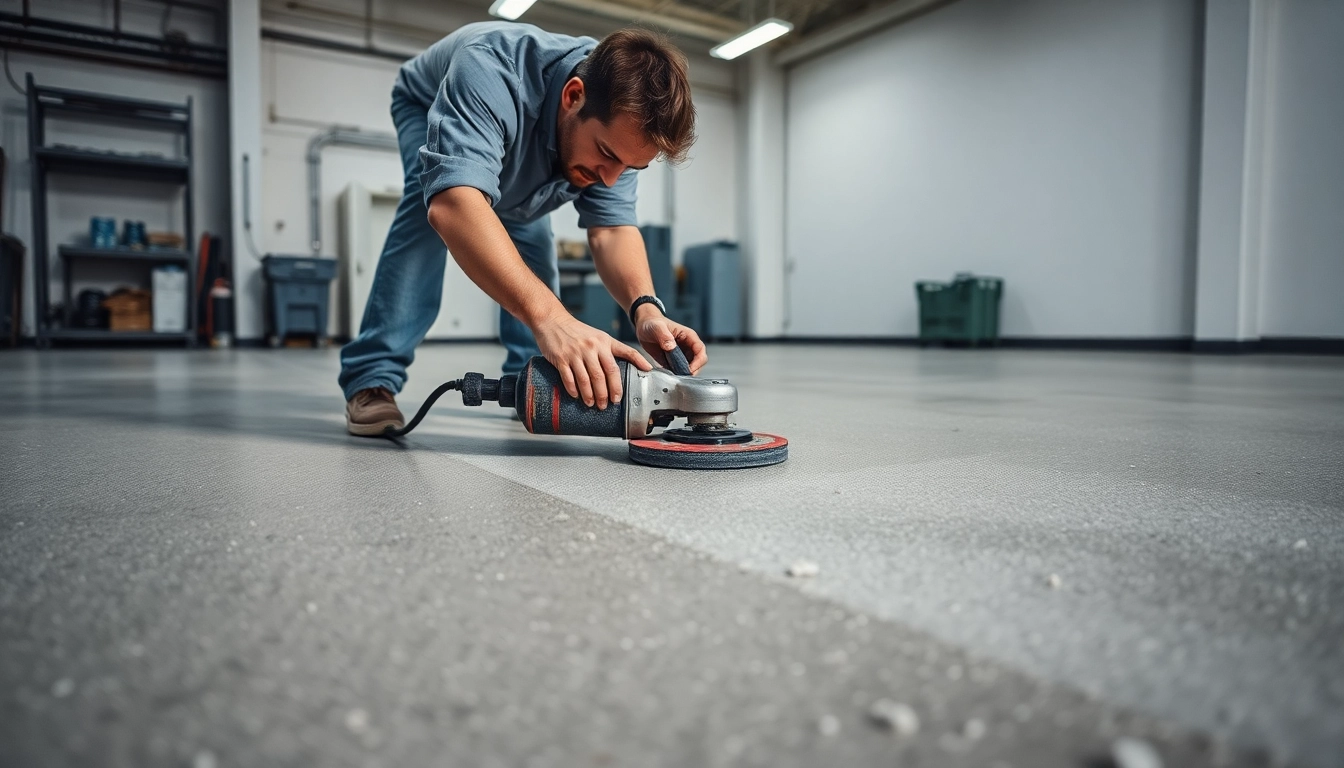Understanding the Importance of Floor Preparation in Birmingham
In the dynamic construction and renovation landscape of Birmingham, ensuring high-quality flooring begins long before the actual installation stage. Proper floor preparation is an essential foundation that influences the durability, appearance, and longevity of any flooring material. Whether you’re opting for hardwood, tiles, epoxy coatings, or resin flooring, the success of your project hinges on meticulous surface preparation. For homeowners and business owners in Birmingham looking to achieve flawless results, understanding the critical role of floor preparation is paramount. It not only guarantees better adhesion and a smooth finish but also minimizes future repair costs and maintenance issues.
To get the best results, partnering with experienced local professionals who specialize in Floor preparation Birmingham is highly recommended. These specialists employ advanced techniques and equipment, tailored to the unique conditions of Birmingham’s diverse building environments. But why is surface preparation so vital, and what challenges do local projects typically face? Let’s explore these aspects in detail, starting with the fundamental importance of proper surface preparation.
Why Proper Surface Preparation Matters
Surface preparation is the cornerstone of any successful flooring job. It involves cleaning, leveling, repairing, and sometimes coating the substrate to make it suitable for the final flooring layer. When the foundational surface is irregular, contaminated, or damaged, it significantly compromises the adhesion process, leading to issues like cracking, bubbling, or uneven wear over time.
A well-prepared floor ensures that adhesives bond correctly, resulting in a smoother appearance and improved lifespan. For instance, epoxy or resin flooring in Birmingham commercial spaces relies heavily on a perfectly leveled and clean substrate to withstand high traffic and chemical exposure. Failure to prepare the surface adequately can cause costly reworks and damage, ultimately undermining the investment made in quality flooring materials.
Common Challenges in Birmingham Flooring Projects
Birmingham’s unique climatic and infrastructural factors present specific challenges for floor preparation. These include:
- Moisture Content: Underlying concrete slabs may harbor excess moisture due to the region’s humidity, impacting adhesion and curing.
- Surface Contaminants: Presence of oils, paints, or previous coatings can hinder bonding if not properly removed.
- Uneven Substrates: Variations in existing flooring levels or concrete settling can cause uneven surfaces.
- Cracks and Damage: Structural issues or aging concrete require repair before proceeding.
Addressing these challenges through tailored preparation techniques is crucial for ensuring project success and longevity of the finished floor.
Types of Floor Preparation Techniques Used
Floor preparation methods vary depending on the substrate condition, type of flooring to be installed, and project requirements. Common techniques include:
1. Surface Cleaning and Debridement
This fundamental step involves removing dirt, grease, loose materials, and existing coatings. Techniques include pressure washing, vacuuming, and chemical cleaners to ensure a clean, contaminant-free surface.
2. Mechanical Grinding and Scarifying
Using diamond grinders, scarifiers, or shot blasters, this method levels uneven surfaces, removes coatings, and enhances surface roughness to improve bonding. It’s particularly effective on concrete slabs with old paint, adhesives, or damaged layers.
3. Acid Etching
Applying acids to chemically roughen the surface, creating micro-porosities for better adhesion. Proper protection and handling are necessary for safety and effectiveness.
4. Concrete Repair and Leveling
Filling cracks, holes, and high spots using polymer-modified patching compounds or self-leveling overlays. This ensures a flat, stable base for the final flooring layer.
5. Moisture Treatment
Implementing vapor barriers, moisture mitigation membranes, or dehumidification during preparation if high moisture levels are detected.
Choosing the appropriate technique depends on thorough surface assessment, highlighting the importance of expert evaluation before starting preparation work.
Step-by-Step Guide to Floor Preparation in Birmingham
Initial Inspection and Surface Assessment
Begin with a comprehensive evaluation of the existing floor condition. Measure moisture levels, check for cracks or damage, and assess cleanliness and levelness. Using tools like moisture meters, laser levels, and surface testers helps create a clear plan for preparation.
Cleaning, Repair, and Leveling Procedures
Based on assessment outcomes, clean the surface thoroughly. Repair cracks and damages, then level uneven areas with appropriate self-leveling compounds or overlays. This process may involve multiple stages for complex surfaces.
Choosing the Right Preparation Method for Your Project
The final step is selecting techniques aligned with your flooring type and environmental factors. For instance, epoxy coatings demand a dust-free, dry, and smooth surface, achievable through diamond grinding and moisture mitigation. Consulting with local experts ensures that the chosen methods are effective for Birmingham’s specific conditions.
Best Practices for Effective Floor Preparation
Ensuring Safety and Compliance Standards
Adherence to safety protocols and compliance with building regulations is vital. Proper ventilation, PPE, and disposal procedures should be enforced. Additionally, understanding local regulations for environmental safety and waste management in Birmingham ensures full compliance.
Utilizing Advanced Equipment for Precision
Modern equipment such as industrial-grade diamond grinders, scarifiers, and moisture meters improve accuracy and efficiency. Precision equipment reduces surface imperfections and ensures a uniform base, especially important for high-performance flooring systems.
Scheduling and Minimizing Downtime
Strategic planning minimizes disruptions. Proper scheduling, considering weather conditions and project size, helps in reducing downtime and delivering timely results. Working with experienced contractors can streamline workflows, especially for large commercial projects in Birmingham.
How Professional Floor Preparation Enhances Project Outcomes
Improved Adhesion and Durability
Proper preparation results in a stronger bond between the substrate and flooring material. This leads to increased resistance to wear, chemicals, and impact, thereby extending the lifespan of the floor.
Reducing Long-Term Maintenance Costs
A well-prepared base minimizes issues like delamination, cracking, or peeling. Investments in quality preparation significantly lower future repair or replacement costs, ensuring your flooring remains pristine and functional for years.
Creating a Perfect Base for a Variety of Flooring Types
Whether installing hardwood, tiles, epoxy, or resin coatings, consistent surface quality allows for a wider range of flooring options, providing flexibility for design and functionality goals.
Choosing the Right Floor Preparation Partner in Birmingham
What to Look for in a Flooring Contractor
- Relevant local experience with Birmingham’s building conditions
- Certified and trained in advanced preparation techniques
- Positive reviews and proven track record
- Transparency about processes and materials used
- Capability to handle projects of varying sizes
Questions to Ask Before Hiring
- What preparation methods do you recommend for my specific project?
- Can you provide references or case studies of similar work?
- How do you handle moisture and other environmental factors?
- What is your estimated timeline and cost breakdown?
- Are your technicians certified and insured?
Case Studies of Successful Floor Preparations in Birmingham
Many local businesses and homeowners have benefited from partnering with seasoned professionals who understand Birmingham’s unique requirements. For example, a commercial resin flooring project in Birmingham’s industrial district saw a critical reduction in installation time and post-application issues due to meticulous preparation, leading to enhanced durability and customer satisfaction.



